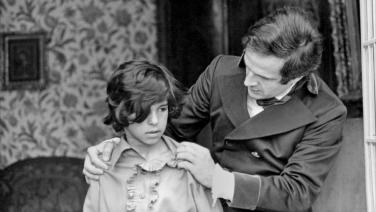
L'enfant sauvage, François Truffaut, France 1970, 85', OV with Spanish Subtitles, DCP.
Truffaut again. After screening Les quatre cents coups (The 400 Blows,1959) a year ago, we’re fishing out this year another of his classics, a fundamental work to define our season on youth imaginaries in the history of cinema.
Here, Truffaut departs from a true-to-life event taken from something found in the work notes of late XVIII century doctor and pedagogue Jean Itard. “This is a true story. It begins in a forest in France, in the summer of 1789.” Those words are run across the screen before the opening credits. The story establishes that date as the time when, in the woods outside Toulouse, a wild child who was born and had lived all his life until then in that natural environment, without any contact with human beings, was found. The doctor, played by Truffaut himself, did his utmost to bring that child, baptized as Victor de Aveyron, into early XIX century French society.
The film deals with the notion of nature and freedom, opposed to concepts such as civilisation and education. It is one of the fundamental works of the history of cinema, providing lots of scope for debate on the construction of “the social”. Beyond all educational readings and sociological analyses, we are here, first and foremost, before a film by Truffaut. It is important to say just that. Cinema, pure and riveting.
Truffaut again. After screening Les quatre cents coups (The 400 Blows,1959) a year ago, we’re fishing out this year another of his classics, a fundamental work to define our season on youth imaginaries in the history of cinema.
